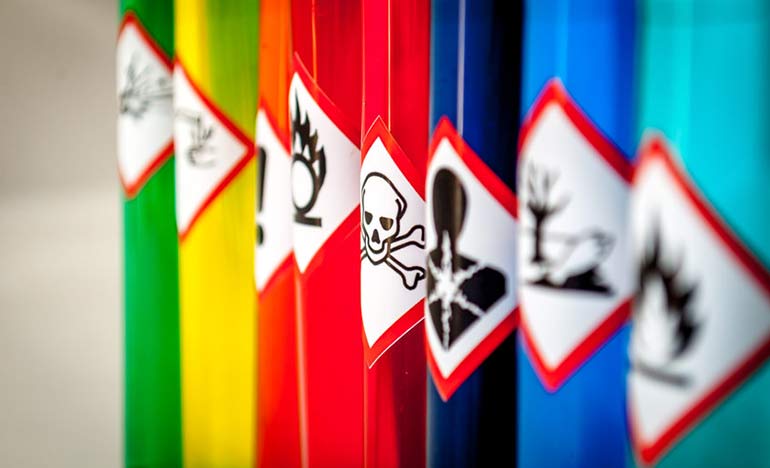PFAS ban considers impact on heat pumps
7th February 2023
EUROPE: A number of HFC refrigerants and low GWP HFO alternatives could be banned under new PFAS chemical restrictions proposed to the European Chemicals Agency (ECHA).
However, exemptions have been proposed for refrigerants considered PFAS substances used in HVACR equipment in buildings where national safety standards and building codes prohibit the use of alternatives.
In what has been described as one of the largest bans on chemical substances ever in Europe, some HFCs including R134a and R125, along with the low GWP alternatives R1234yf, R1234ze(E) and R1233zd(E), are set to be included in a ban under the European REACH regulations.
The European REACH (Registration, Evaluation, Authorisation and Restriction of Chemicals) regulation governs which chemicals can be manufactured and used within the EU.
The targeted refrigerants are amongst around 10,000 chemicals defined as PFAS (per- and polyfluoroalkyl substances). They are used in a wide range of industries including textiles, cleaning products, paints, non-stick coatings and fire-fighting foams, and are known to be highly persistent in the environment, contaminating groundwater, surface water and soil, and causing serious health effects such as cancer and liver damage.
If accepted, the proposals would enter into force in 2025 and allow an 18-month transition period to alternatives. However, there are a number of proposed exemptions, some of which relate to the air conditioning, heat pump and low temperature refrigeration sector.
The proposals, presented by Germany, the Netherlands, Norway, Sweden and Denmark, appear to have taken note of concerns that the suggested timescale would compromise the EU Green Deal and REPowerEU decarbonisation goals.
It accepts that technically and economically feasible alternatives will not be available at the date of entry into force and suggests an unlimited exemption for refrigerants in HVACR equipment in buildings, where national safety standards and building codes prohibit the use of alternatives.
It also proposes a transition period of 18 months and a 12-year exemption for maintenance and refilling of existing HVACR equipment where drop-in alternatives are not available.
Exemptions are also proposed for low temperature refrigeration applications and refrigerants in laboratory test and measurement equipment and in refrigerated centrifuges.
The ban on PFAS refrigerants in low temperature refrigeration below -50ºC seeks a transition period of 18 months and a five-year exemption.
Laboratory test equipment and centrifuges would receive a 12-year exemption as no alternatives are currently available.
A six-month public consultation period will begin next month.
Related stories:
PFAS refrigerant ban could impact EU green aims – 4 January 2023
EUROPE: The chemical industry claims that proposals to ban certain refrigerants as PFAS substances under the European REACH regulations could compromise EU Green Deal and REPowerEU goals. Read more…
HFC/HFO ban would have “major consequences” – 20 September 2021
NETHERLANDS: The Dutch association representing 400 refrigeration and air conditioning companies has hit out at its own country’s proposals which could ban HFCs and HFOs under a new REACH regulation. Read more…
REACH proposals could hit HFC and HFO refrigerants – 21 July 2021
EUROPE: While Europe continues with the HFC refrigerant phase down, new proposals to be put before the Commission could see further restrictions or even bans on HFCs and HFOs. Read more…
REACH proposal is unclear – 23 July 2021
EUROPE: The European chemical trade association, CEFIC, has admitted that it is unclear what HFC and HFO refrigerants are included in the new REACH regulation proposals. Read more…
Refrigerants under threat from new PFAS proposals – 15 July 2020
EUROPE: Proposals to restrict the use of PFAS – a range of chemicals dangerous to health – could further impact the use of HFC and HFO refrigerants in Europe. Read more…







